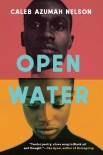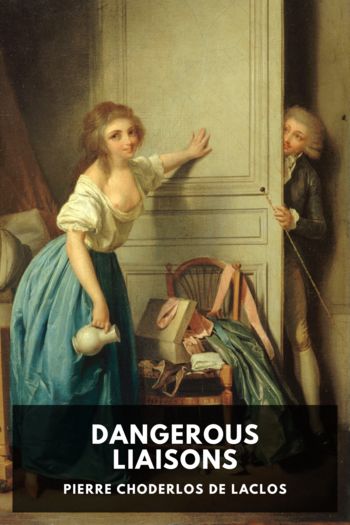Open Water, Caleb Nelson [best summer books txt] 📗

- Author: Caleb Nelson
Book online «Open Water, Caleb Nelson [best summer books txt] 📗». Author Caleb Nelson
‘What are you doing here?’ you ask.
‘Hello to you too.’
‘Yes, yes, hello, hi – you’re back?’
‘I am.’
‘When, how, what?’
She’s grinning at you, watching your excitement spill over into nervous babble.
‘Come here,’ she says, pulling you into an embrace once more.
‘How long has it been? A month?’
She nods. ‘About that.’ A pause. ‘Too long. Much too long.’
You separate and she reaches for your face, but doesn’t quite make contact, tracing your outline, giving you form and detail. It’s summer now, and she’s drawn a line towards you, or maybe the line always existed, will always exist. It’s summer now, and language is still flimsy, inadequate, so you stand, silenced by the weight of it all, letting your bodies confess their truths.
It’s summer now, so you’re all moving slower. DJ Screw, legendary Houston pioneer of chopped and screwed music, would make songs at slower tempos, to feel the music and so you can hear what the rapper is saying. I make my tapes so that everyone can feel them. For Screw, slowing a record down allowed it to breathe.
There is a pleasurable freedom in this slowness; where the frequencies lower and it is not so much a matter of the head but the chest. You say words with your chest. You feel bass slap thud, like a heartbeat. You say words with your chest and know there is power in your voice. You say words with your chest and trust yourself. You speak and realize that, in slowing down to speak, you can breathe. It’s a strange turn of phrase, you think, being allowed to breathe, having to seek permission for something so natural, the basis of life; in turn, having to seek permission to live.
It’s summer now, so let’s slow down, and breathe. Let’s say you’re playing basketball on Saturday afternoon in July, and you’re sprawled out on the sideline, taking a breather. You reach into your bag and pull out the bulk of your 35mm film camera, always heavy in the hand. You start to take photos, and later, when you’ve dipped the negatives in chemicals, you see you took one by accident. Your finger depressed the shutter a split second after taking one before. It was sunny, so maybe 1/250 of a second after, and later, once you’ve developed the film, this is what came out:
The ball has left the shooter’s hand. It’s spinning backwards as it moves through the air. All four players of this game of two on two cease motion to watch a ball rotate through the air at a rate quicker than the eye can acknowledge. The shooter wills the ball towards the hoop. The others have their own intentions, but the shooter, you know, he wants the ball to go in. The sky is blue and there’s a dusting of cloud. It’s twenty-six degrees on a Saturday afternoon in July. If the ball goes in, they will pick it up and start a new round from the top. If it does not, one or more of the players will rush towards the ball, and they will continue to play. They do this because they need to, they want to. They do this because they can feel it.
There’s so much more you wish to say but there aren’t the words.
It’s summer now and language is flimsy but sometimes it is all you have. You’re sitting in your garden, mouth prised open in this heat. On the small table in front of you, ice shrinks in water, and your notebook is as still as the air, humid and sticky. You’re writing her letters, building her a world you can share. You’re writing about seeing the hanging orb in the sky when one should not; the moon resting there, pale against the daylight, fleshy in the darkness. You’re trying to write slow, so she can hear what you’re saying, but also because there is pleasure in this, where it is not so much a matter of the head but of the chest.
Speaking of, A Tribe Called Quest is playing. The Low End Theory. You are wondering what led Q-Tip, unspoken bandleader, to carve away everything on the high end of sound, allowing the low end of sound, the bass, to dominate, allowing it to speak as if it was a prayer, a desire for freedom. This isn’t an angry album. Sure, there are a plethora of characters who make an appearance, but they are there for purposes of visibility; the album is about being seen, about being heard; it is about freedom, even if it is brief, even if it is only to be found in a head nod on Phife’s verse for ‘Butter’, even if it is only to be found in the joyful surprise for Busta Rhymes’ scene-stealing verse on ‘Scenario’. Hanif Abdurraqib wrote about this album, wondering how strange a life, to be presented to the world, through your flaws; through blood, swollen face, your bent body. How strange a life you and other Black people lead, forever seen and unseen, forever heard and silenced. And how strange a life it is to have to carve out small freedoms, to have to tell yourself that you can breathe. But how beautiful it is when those freedoms arrive, when you are breathing, when you’re matching Phife word for word, or singing the refrain, We got the jazz, we got the jazz. How beautiful, when you’re in a crowd, and you find your wandering gaze met by another, twenty, thirty metres away, both of you unaware that your shoulders and hips are moving to the





Comments (0)